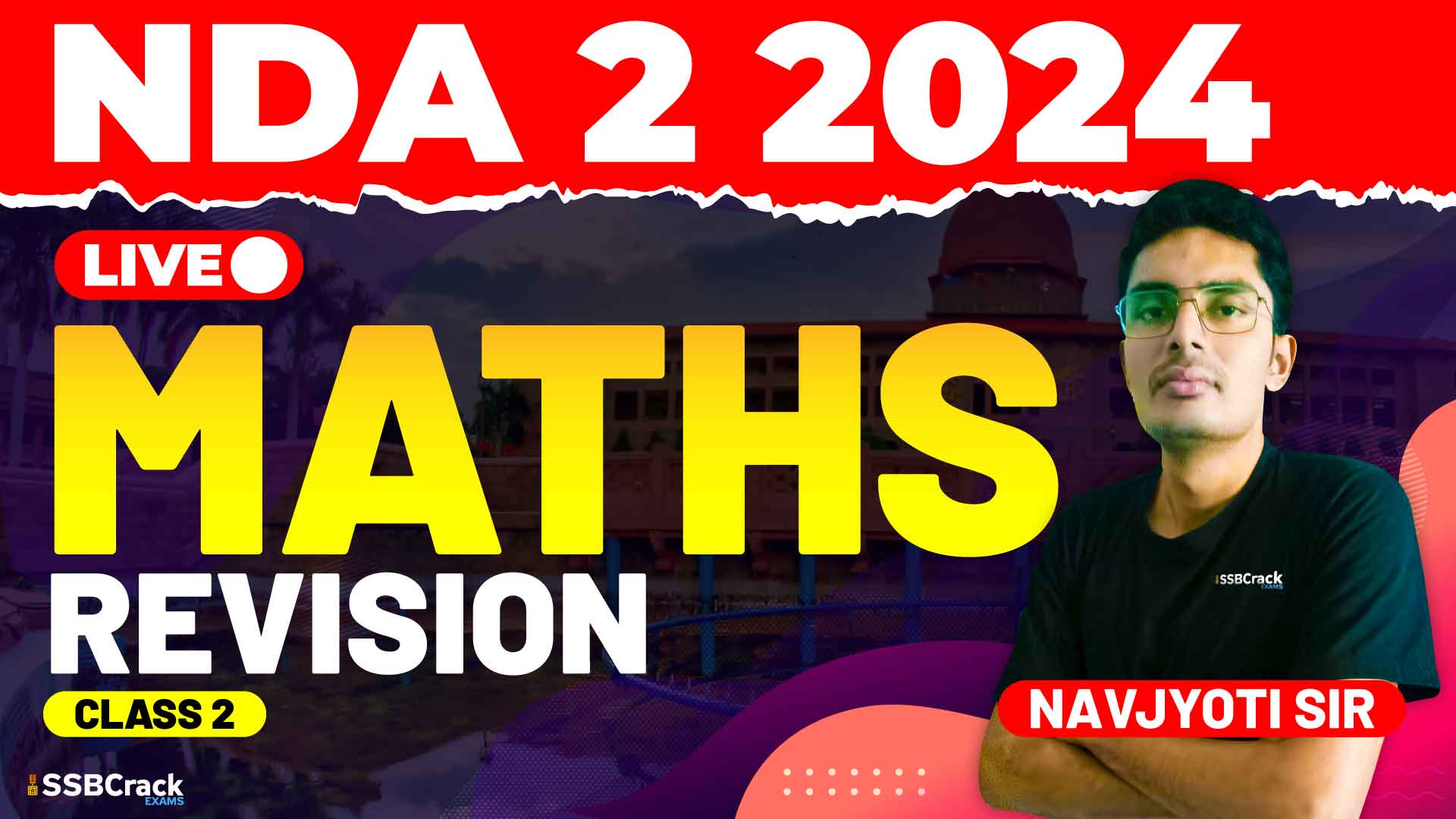Preparing for the National Defence Academy (NDA) Exam, particularly the Mathematics section of Paper-I, demands a thorough understanding of various mathematical concepts. Recently, a focused revision class aimed at practicing multiple-choice questions (MCQs) was conducted on two crucial topics: Sets, Relations and Functions, and Complex Numbers. In this article, I will share insights from this class, discuss the key concepts covered, and provide strategies to effectively tackle MCQs on these topics.
Sets
Sets form the foundation of various mathematical concepts and are essential for solving problems related to grouping and categorization. Key concepts include:
Definition and Notation
Sets are typically denoted by capital letters, with their elements listed within curly braces. For example, A = {1, 2, 3}. Understanding how to define and denote sets is fundamental.
Types of Sets
Familiarize yourself with various types of sets such as finite, infinite, equal, null, and universal sets. Knowing these types helps in identifying and categorizing sets in problems.
Operations on Sets
Operations like union, intersection, difference, and complement are crucial. Practice using Venn diagrams, as they are an effective visual tool for understanding these operations and solving related problems.
Strategies for MCQs on Sets
- Use Venn Diagrams: Visualizing the problem with Venn diagrams can simplify complex set operations and make it easier to identify the correct answer.
- Memorize Set Identities: Familiarize yourself with basic set identities to quickly solve problems involving unions, intersections, and complements.
- Practice Variety: Solve a variety of problems to become comfortable with different types of set operations and questions.
Relations and Functions
Relations and functions extend the concept of sets by defining how elements from one set relate to elements of another.
Relations
Understand ordered pairs and Cartesian products. Different types of relations include reflexive, symmetric, transitive, and equivalence relations. Recognizing these properties is crucial for solving problems.
Functions
Functions map elements from one set to another. Key types of functions include one-one, onto, and bijective functions. Pay attention to the concepts of domain, range, and codomain, as they are frequently tested.
Strategies for MCQs on Relations and Functions
- Identify Types of Relations: Practice identifying reflexive, symmetric, and transitive relations from given sets of ordered pairs.
- Understand Function Types: Be clear about the differences between one-one, onto, and bijective functions. This helps in solving problems related to mappings and functions.
- Use Graphs: Graphical representations can help visualize functions and their properties, making it easier to solve related problems.
Complex Numbers
Complex numbers are an essential part of the NDA Mathematics syllabus and involve a different set of skills and understanding.
Definition and Representation
Complex numbers are represented in the form a + bi, where ‘a’ is the real part and ‘b’ is the imaginary part. Understanding this basic representation is crucial.
Operations on Complex Numbers
Performing operations like addition, subtraction, multiplication, and division on complex numbers is fundamental. Familiarize yourself with these operations to solve related problems effectively.
Properties of Complex Numbers
Understanding the properties of complex numbers, including the modulus and argument, is essential for solving problems involving complex numbers.
Strategies for MCQs on Complex Numbers
- Practice Operations: Regularly practice basic operations on complex numbers to increase speed and accuracy.
- Visualize on Argand Plane: Visualizing complex numbers on the Argand plane can help in understanding their properties and operations better.
- Solve Varied Problems: Work on a variety of problems involving different aspects of complex numbers to build a comprehensive understanding.
General Strategies for Tackling MCQs
- Time Management: Allocate time wisely. Don’t spend too much time on any single question. If you’re stuck, move on and return to it later.
- Practice Regularly: Consistent practice is crucial. Use previous years’ question papers and sample MCQs to familiarize yourself with the pattern and difficulty level.
- Conceptual Clarity: Ensure you have a strong understanding of fundamental concepts. Rote learning can lead to confusion during the exam.
- Elimination Technique: Use the process of elimination on MCQs. Narrow down options by eliminating clearly incorrect answers first.
- Mock Tests: Take regular mock tests under timed conditions to build confidence and improve speed.
- Revise Formulas and Identities: Keep a list of essential formulas and identities for quick revision, especially for topics like sets and complex numbers.
Conclusion
Preparing for the NDA exam requires a disciplined approach, regular practice, and a thorough understanding of fundamental concepts. The revision class on Sets, Relations and Functions, and Complex Numbers provided valuable insights into solving MCQs efficiently. By focusing on these strategies and practicing diligently, you can enhance your problem-solving skills and improve your performance in the exam.
Remember, consistency and perseverance are key. Keep practicing, stay focused, and approach each topic with a clear strategy. Good luck with your NDA exam preparation!







